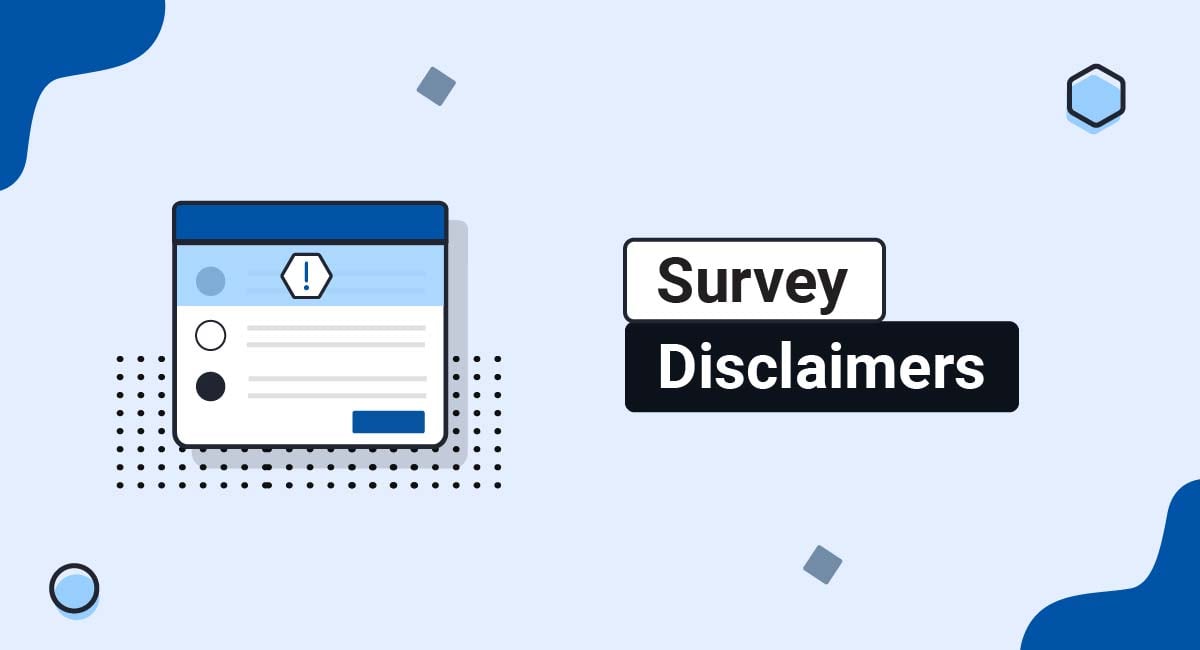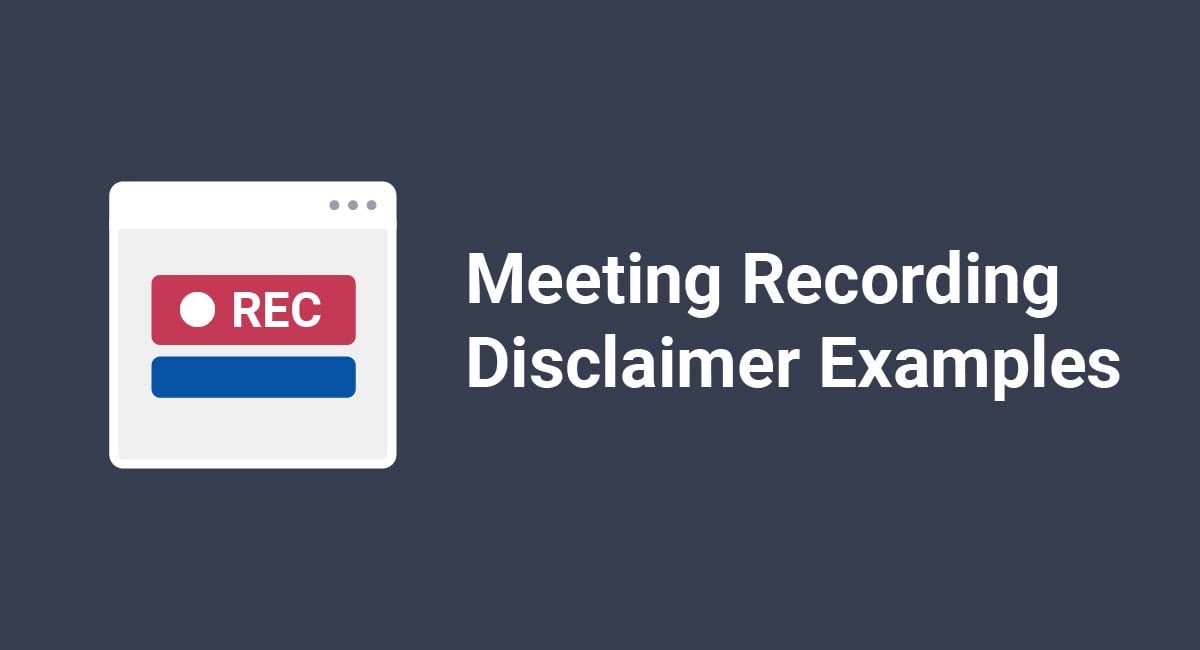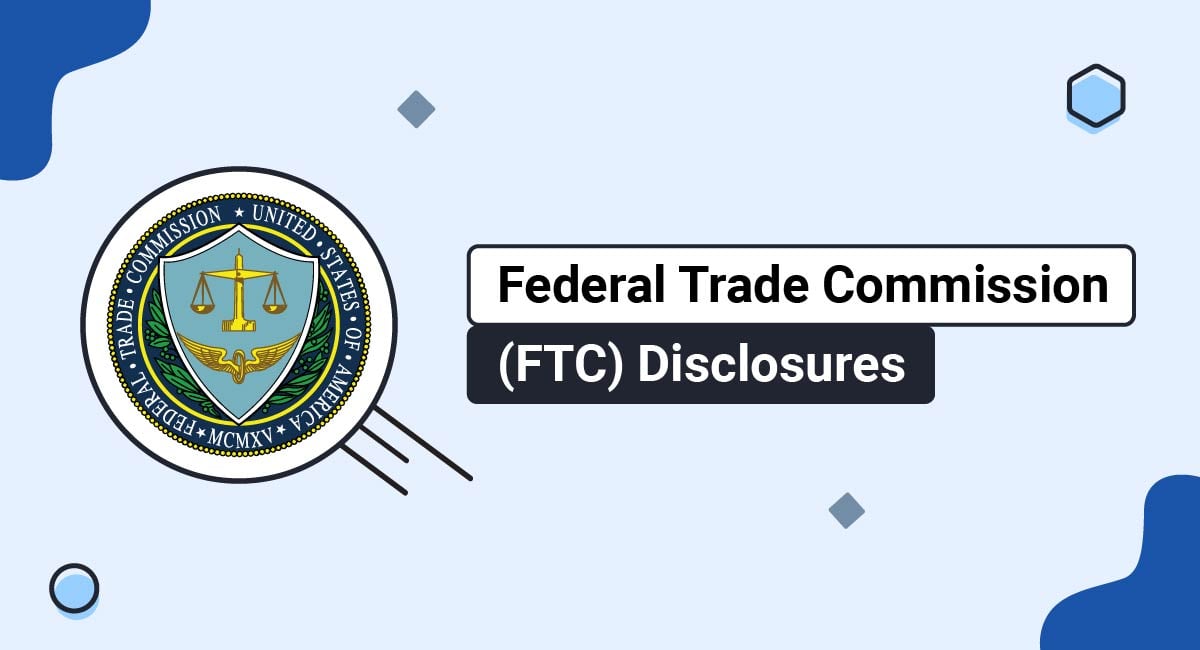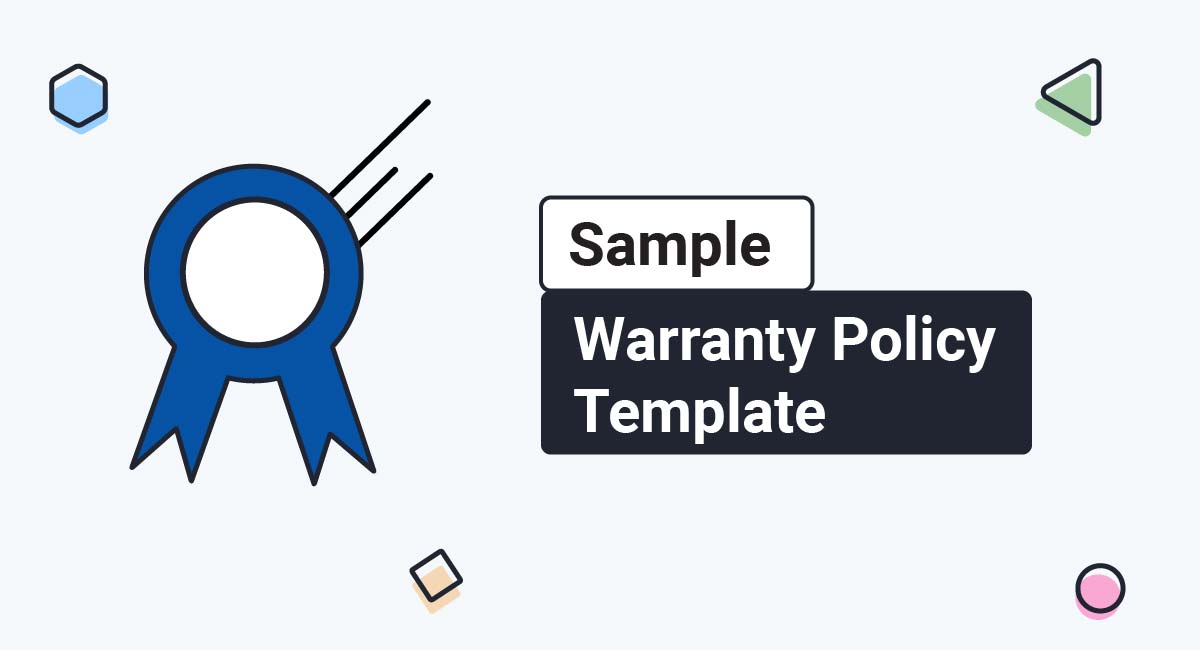If your business or website uses surveys to collect personal information, including a survey disclaimer is an excellent way to protect your business and your users.
This article breaks down what survey disclaimers are, what they should include, and how to create your own.
Our Disclaimer Generator can generate a legal disclaimer for your business, website or mobile app. Just follow these steps:
-
At Step 1, select where your Disclaimer will be used.
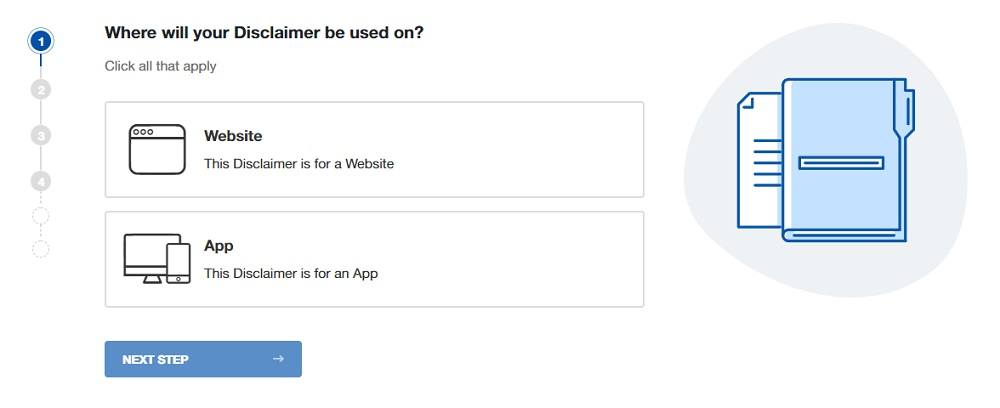
-
At Step 2, add in information about your website/app and business.
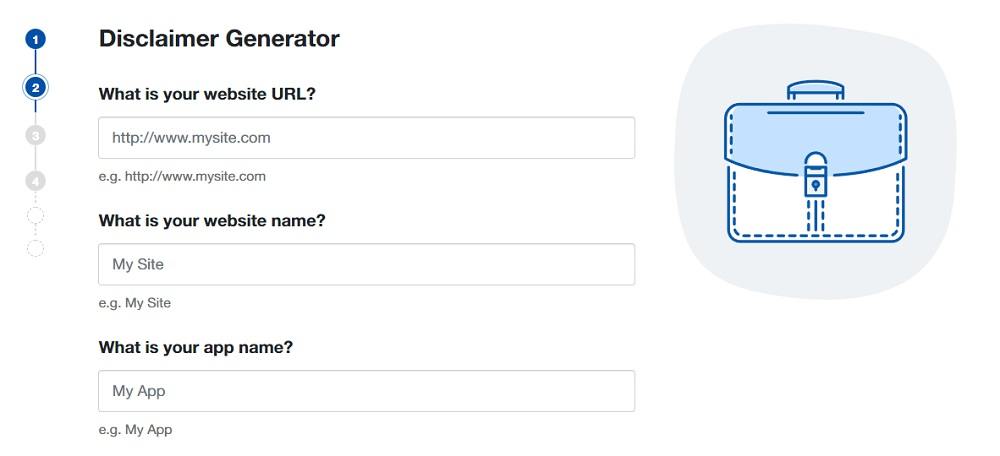
-
Answer some questions about your business practices.
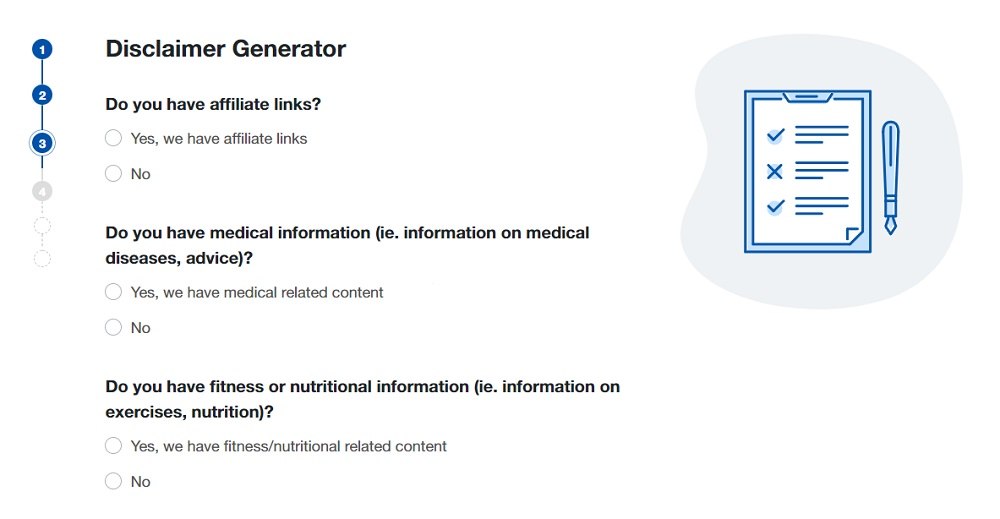
-
Enter an email address where you'd like to receive your Disclaimer and click "Generate."
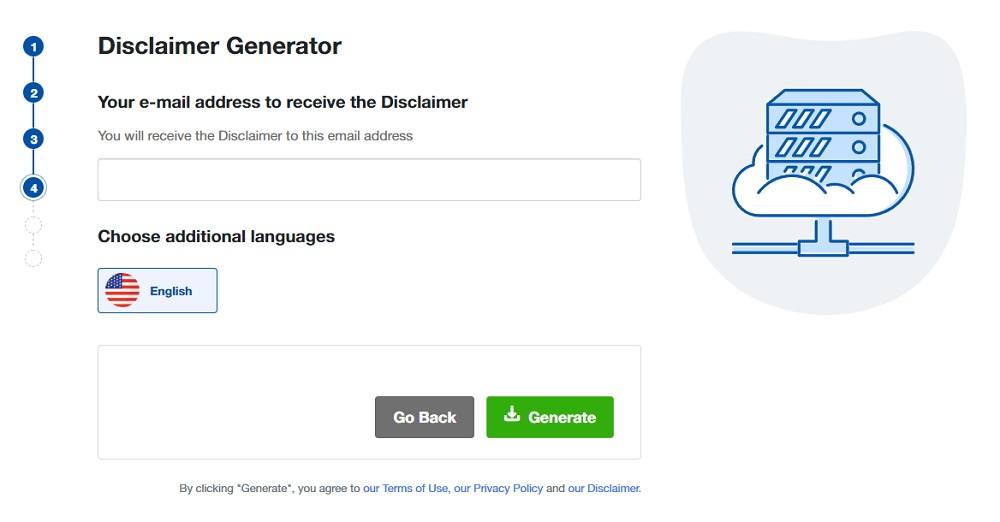
Done! You'll be able to instantly access and download your new Disclaimer.
- 1. What are Survey Disclaimers?
- 2. Why are Survey Disclaimers Important?
- 3. Are there Specific Laws and Regulations Requiring Survey Disclaimers?
- 4. How Do I Write a Survey Disclaimer?
- 4.1. Data Protection and Legal Compliance
- 4.2. There is No Professional Relationship Formed
- 4.3. Affiliate Links
- 4.4. Third-Party Links
- 4.5. Copyright
- 4.6. Compensation
- 4.7. Risks Linked to the Survey
- 5. Where Should I Display Disclaimers for Surveys?
- 6. What are the Consequences of Not Including a Survey Disclaimer?
- 7. Summary
What are Survey Disclaimers?
A survey disclaimer is a short text statement that gets included with a survey to inform survey takers of something.
They are the same as any other disclaimers, except they are associated with an online survey.
Why are Survey Disclaimers Important?
Survey disclaimers are important because they help establish trust with survey participants, and inform them of important information regarding the survey.
They also help limit liability in the same way that other disclaimers do.
Are there Specific Laws and Regulations Requiring Survey Disclaimers?
No, not specifically. However, if your survey collects legally protected personal information, it will trigger the requirement to have and display a Privacy Policy on the site where you have the survey.
For more information on laws that require a Privacy Policy if personal information is collected, such as through a survey, check out our feature articles:
How Do I Write a Survey Disclaimer?
There are a variety of ways to write a survey disclaimer, depending on the nature of your business and the survey itself.
Here are a few ways to write a disclaimer that may be appropriate for your survey.
Data Protection and Legal Compliance
If a survey collects personal information, such as a name or email address, you can let users know that you take steps to protect the personal information and to comply with laws.
Here's how Endometrix's survey disclaimer addresses data collection and laws:
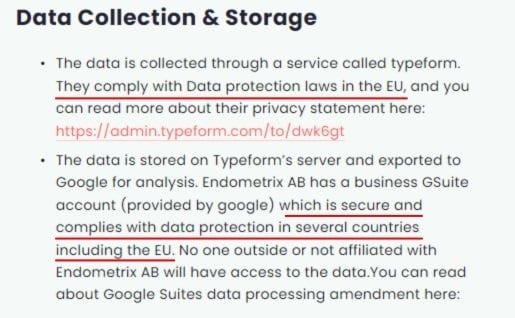
You can include a reminder in your survey itself, as seen below, to not include any personal or confidential information:
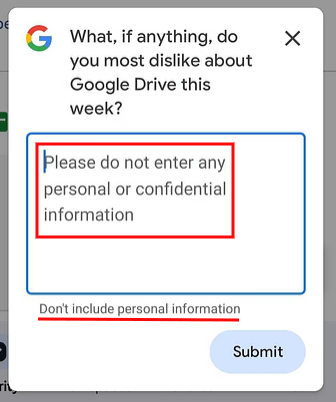
There is No Professional Relationship Formed
If your survey may be perceived as creating a relationship between you and the survey taker, you can use a disclaimer to help ensure that survey takers know that they are not becoming your client, patient, etc. by taking the survey.
This disclaimer is particularly relevant for surveys that ask medical or legal questions.
For example, OSF Healthcare clarifies that there's no professional relationship formed with users. The company incorporates the following statement in its Health Risk Assessment Disclaimer:
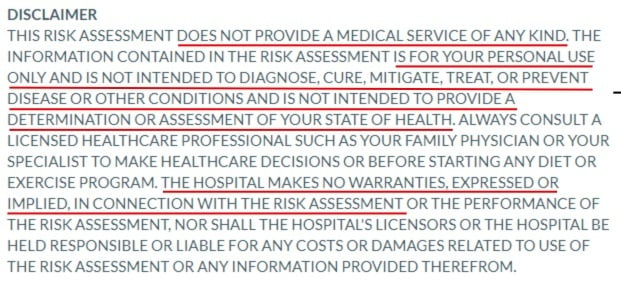
In its initial statement, OSF Healthcare's Disclaimer clarifies that risk assessments do not equate to a medical service.
It also informs users that:
- The risk assessment survey is designed solely for individual use and isn't aimed at diagnosing, alleviating, or addressing any health condition or ailment
- Engaging a licensed healthcare professional is always recommended
The hospital offers no explicit or implied guarantees concerning the risk assessment.
Affiliate Links
If your survey includes affiliate links, inform users that you might receive compensation if they buy a product or service from a third-party source you've linked to on your blog, website, or mobile application.
In the United States, the FTC mandates the presence of affiliate disclaimers alongside affiliate links.
Here's an example of a disclaimer used by Awesome Survey Reviews:
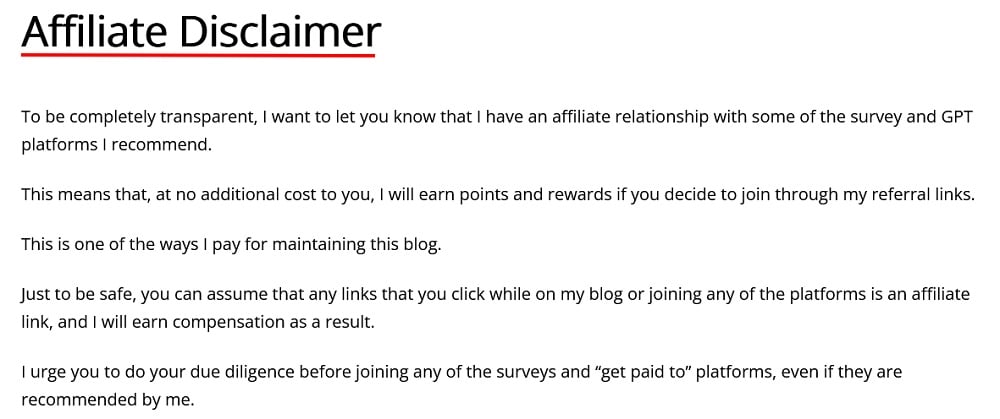
Third-Party Links
If your survey includes links that direct users to external sites, include a disclaimer specifying that you're not accountable for the content on those linked sites.
This can protect you from potential liabilities stemming from issues on those third-party platforms.
Here's how The Anti Fragile Survey lets users know that it's not responsible for content found on websites it links to:
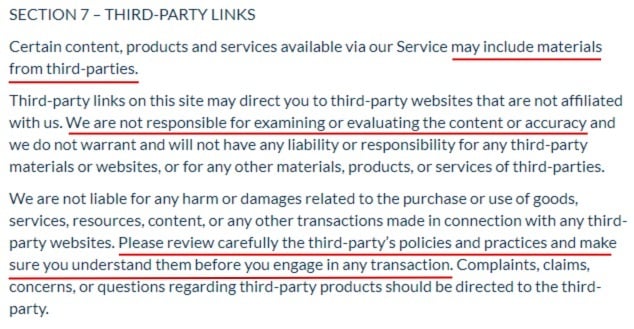
Copyright
You should inform users through your survey disclaimer that the material on your website and in your surveys is proprietary and unauthorized usage without your consent is prohibited.
Here's how CPR Survey does this:
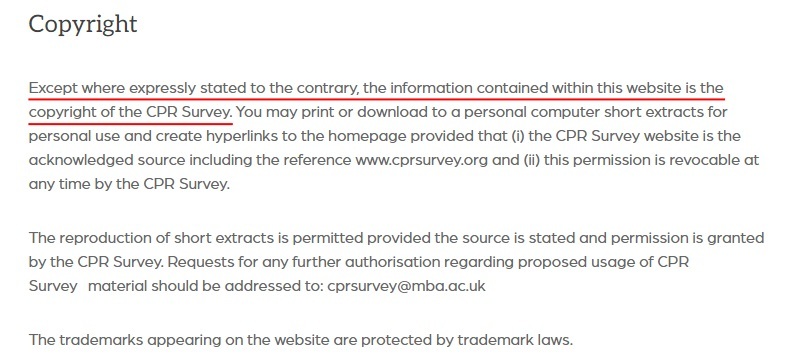
As you can see, CPR Survey asserts its copyright over the content on this website unless explicitly stated otherwise.
Compensation
If you give monetary compensation to survey-takers, let them know any important information about how compensation will work, such as if there are tax responsibilities.
The Society of Manufacturing Engineers includes language about compensation related to its surveys and promotions on its survey disclaimer page:
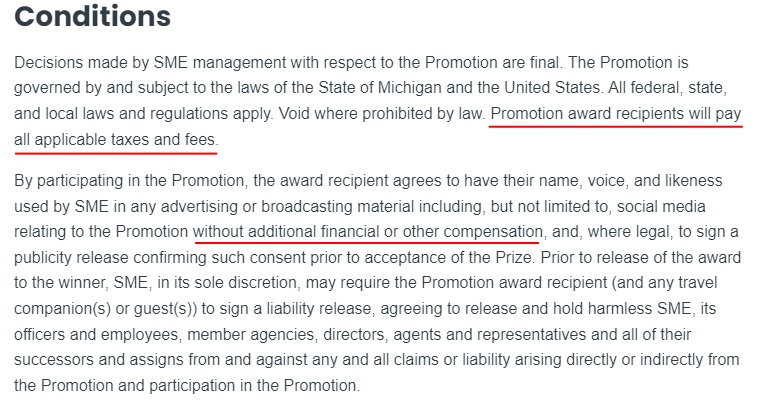
Risks Linked to the Survey
While many surveys pose minimal risk, participants can face social, economic, and psychological challenges if data breaches occur or anonymity is lost.
Here's an example of how you can disclose this in a disclaimer survey:

Where Should I Display Disclaimers for Surveys?
For a survey disclaimer to truly serve its purpose, both its content and its placement are pivotal. Some optimal places to display your survey disclaimer include the following:
Beginning of the Survey: Placing your disclaimer at the beginning of the survey helps make sure that participants have a chance to view it before starting the survey.
Here's an example of how this can look, with the survey disclaimer posted above the link that takes someone to the survey:
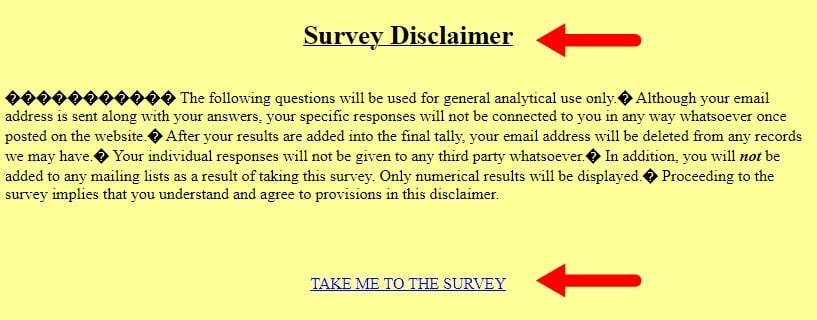
Footer of the Website: Another strategic location is within the footer of your website. A link labeled "Survey Disclaimer" can direct users to the detailed terms, ensuring that they're always accessible to anyone visiting your site.
Within a Terms and Conditions agreement: Consider adding your survey disclaimer within your Terms and Conditions agreement.
On Device Research has a separate Terms and Conditions agreement for surveys, but you could simply add a clause like this one here to your standard T&C:
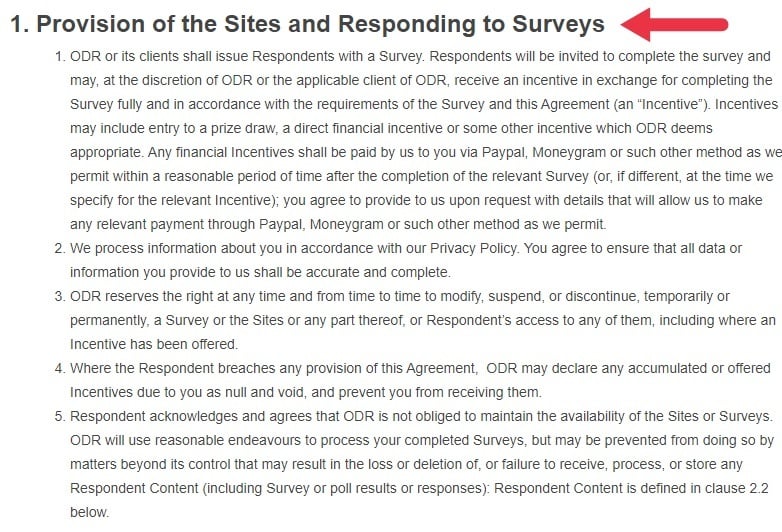
What are the Consequences of Not Including a Survey Disclaimer?
Not including a survey disclaimer can lead to legal issues and trust issues.
Without a clear disclaimer, you open yourself up to potential legal challenges. Respondents could claim misrepresentation, misuse of data, or even violation of privacy rights.
If participants were not made aware of the purposes or potential uses of their data and harm results, they might seek legal redress. In many jurisdictions, laws regarding data collection and user consent are stringent, and failing to adhere can result in fines or lawsuits.
Surveys, especially those in the fields of medical research or social sciences, often deal with sensitive information. Absence of a clear disclaimer can blur ethical boundaries, especially if participants are unaware of potential risks or how their data might be used.
Ethical malpractices can tarnish your reputation and lead to a loss of professional credibility.
Trust is fundamental to a respondent's willingness to participate in a survey. If participants feel their information might be misused or that they were deceived about the survey's nature, they may become wary of future interactions.
Word of mouth can amplify these concerns, making it harder to recruit participants in the future.
Summary
Having a clear and well-structured survey disclaimer is crucial. Not only does it shield your organization from potential liabilities, but it also keeps participants informed about important information related to your survey.
While there's a wide range of potential disclaimers for surveys, some common ones include:
- Clarifying professional relationships
- Highlighting affiliate links
- Noting third-party links
- Stating copyright protection
- Explaining compensation
- Detailing potential risks
It's common practice to position these disclaimers prominently, typically at the survey's outset and within the Terms and Conditions, ensuring participants see them before diving in.

Comprehensive compliance starts with a Privacy Policy.
Comply with the law with our agreements, policies, and consent banners. Everything is included.
